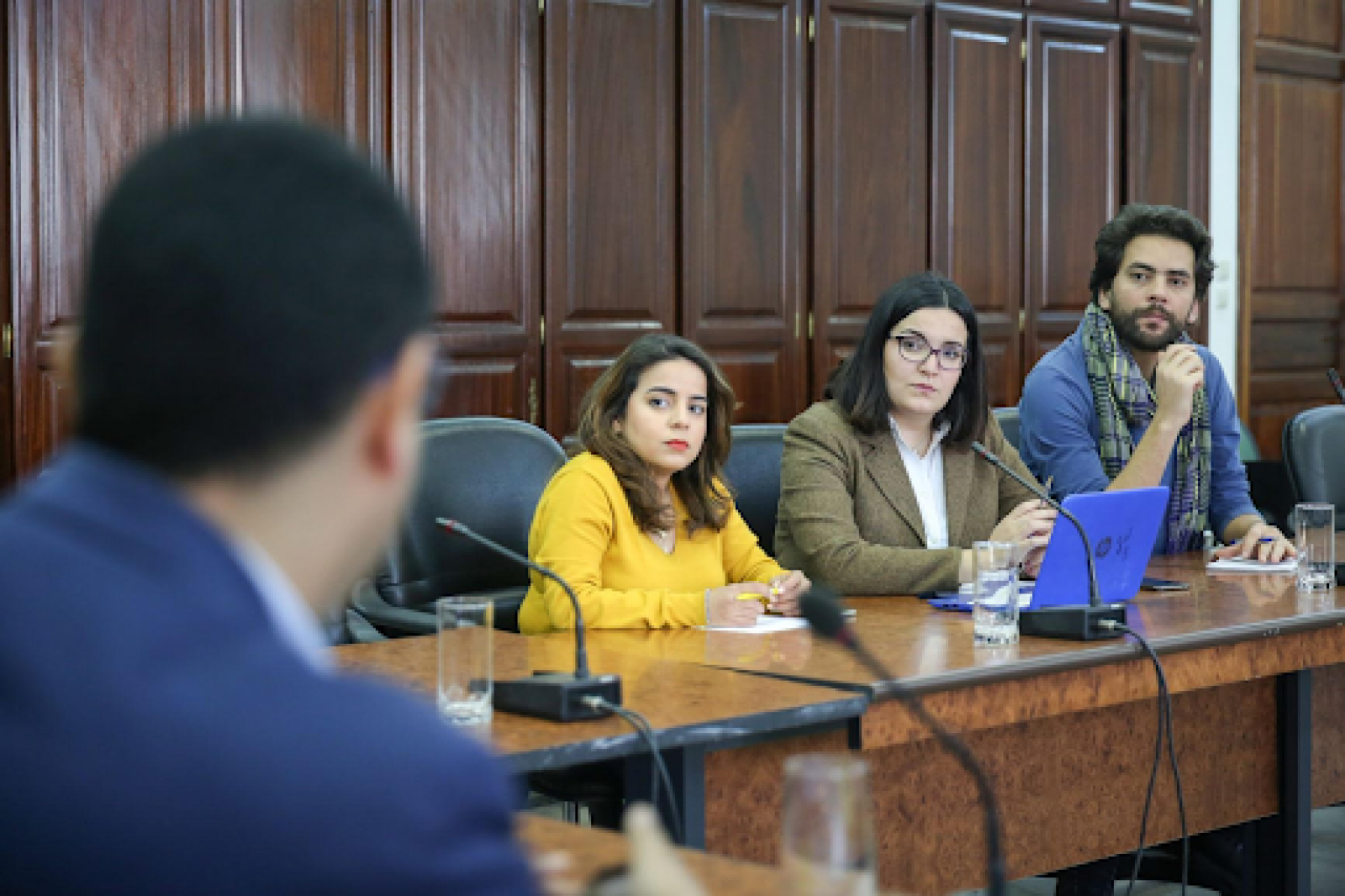
SHARE
ISSUES
On March 3, Tunisian civil society demonstrated the impact that collaborative advocacy can have on policy making. As the Tunisian parliament moved to quickly amend electoral policy to establish a new vote threshold for parliamentary representation, six Tunisian election observation groups, known collectively as the Collaborative Group (CG), launched a successful joint advocacy initiative to delay review of the amendment in favor of a broader, more participative review. Through their partnership, these civil society organizations (CSOs) helped to shape debate on the amendment while securing their place in future discussions on electoral reform.
Tunisia’s current electoral system, a proportional voting system, often results in the election of a large number of small parties and independent candidates. While proportional voting creates a diverse body of legislators, many contend that it can easily impede the creation of a government and slow the pace of policy-making overall. On January 24, in the midst of the negotiations to form a government, a group of MPs submitted a proposal to establish a five percent threshold that would require future candidate lists to earn 5% of votes in a given district to secure seats in Parliament.
The threshold bill evoked concerns among civil society due to the pace, timing, and lack of public consultation involved in the process. The Collaborative Group (CG) was well-positioned to communicate these views due to their collective platform and advocacy experience. The CG is made up of six of NDI’s Tunisian election observation partners who came together in 2017 with the goal of facilitating greater cooperation across the organizations and increasing the collective impact of their work. As civil society experts on the electoral procedure, they should have been central in consultations surrounding this type of reform, but a rushed process threatened to pass them by. However, having participated in a series of sessions with NDI on advocacy campaigns, they were well prepared to step in and make their voices heard.
tunisia.png

The CG’s advocacy campaign focused on a few key points: the timing and rushed passage of the bill and its proximity to possible snap elections, failure to adhere to international best practices of not amending electoral laws close to elections, and that such reform should involve civil society consultations to benefit from their expertise. Media was key in the dissemination of their messaging; they used coordinated press releases and a social media outreach campaign “علاش توة” (“Why now?”) on Facebook. The CG also reached out to nine other CSOs to participate in advocacy related to the bill. Some of these organizations launched their own campaigns, broadening the base of complaints.
On March 2, one day before the scheduled vote, representatives from the CG met with an MP and parliament’s vice president in charge of relations with civil society. The six group members presented a compelling case for delaying the amendment vote and expanding the debate to include the entire electoral legal framework. This presentation, in tandem with mounting pressure from a wide range of stakeholders, resulted in the MPs committing to scheduling hearings with civil society to review the law before it was put to vote. When the next day’s vote came, parliament voted overwhelmingly (106 in favor, 11 abstentions and 1 opposed) to send the bill back to the committee to allow for a broader and more participative review process. In their remarks, MPs emphasized the need for wider electoral reform and adequate review time, a message that echoed the advocacy campaign of the Collaborative Group.
By responding quickly to the parliament’s initiative to amend the electoral law, this effort demonstrated the impact that collaborative efforts among civil society actors can have on political decision-making. Over the course of one month, Tunisian civil society experts were able to slow hasty policymaking to a halt in favor of a more comprehensive debate on possible improvements to the wider electoral framework. By demanding their place in a parliamentary review of the electoral process, Tunisian CSOs not only contributed to preserving the integrity of the electoral process but also set a precedent for inclusive and consultative political institutions and nuanced policy changes.


